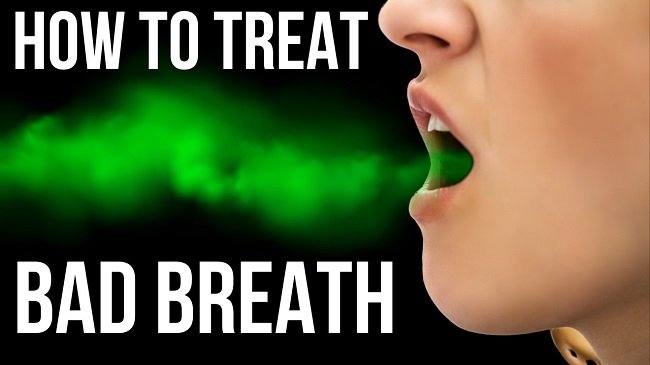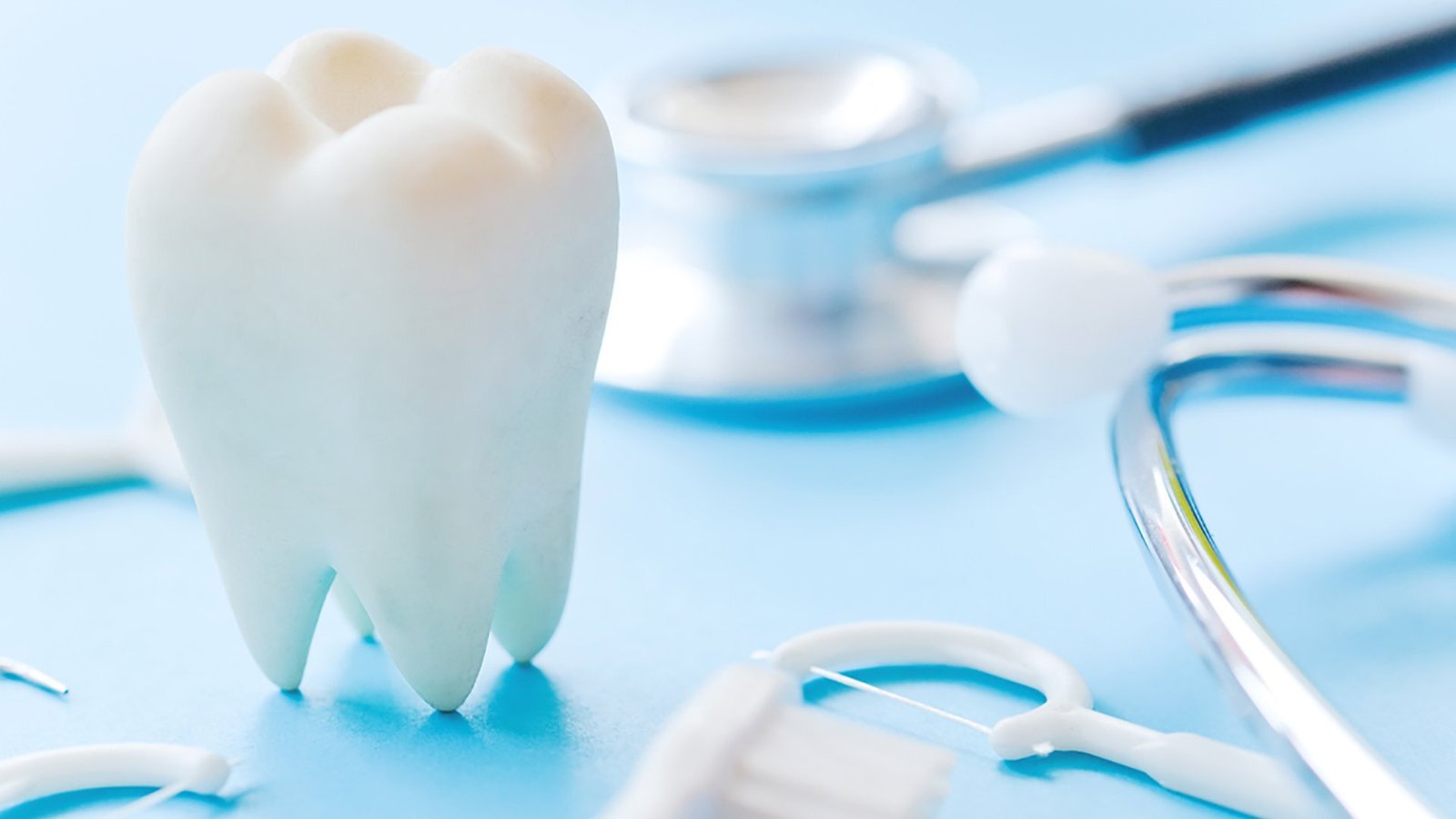Halitosis, also known as bad breath, is an embarrassing and persistent issue affecting social interactions and confidence. Most of us have a hard time figuring out what the right solutions are, but the secret is determined by the root problem. Aidite is a prominent dental equipment manufacturer for high–end dental solutions tailored for professionals and a dental clinic for oral health management. Regardless of the reason why bad breath occurs, it is important to know how to deal with halitosis so we can always maintain fresh breath and proper oral health.

Understanding Halitosis
Bad breath is caused by the accumulation of bacteria in the mouth, which can be exacerbated by leftover food, a dry mouth, gum disease, or inadequate cleaning of your teeth. The most important part of how to deal with halitosis is proper hygiene and preventive Dental Care.
Causes of Halitosis
Understanding the causes of halitosis is important before you find the right halitosis treatment. Here are the most common causes of bad breath:

- Poor Oral Care: The infrequent brushing and flossing of teeth allows food residue to gather, which then puts a variety of bacteria in your mouth, leading to halitosis.
- Dry mouth: Saliva helps wash away harmful bacteria that produce odors. Drinking water and using a mouthwash for halitosis can help prevent this.
- Gum disease: Periodontal infections can add to chronic bad breath. It is better to seek professional halitosis treatment.
- Eating Foods: Eating foods like onions, garlic and spicy foods can leave you with a lingering smell. It helps to follow halitosis prevention tips, such as to change your diet.
- Tobacco and Alcohol: Tobacco and alcohol intake dehydrates the mouth and create bacteria, leading to bad breath.
- Health factors: Halitosis can also be due to medical issues like infections in the respiratory tract, digestive disorders, or diabetes. In some cases, it may be necessary to seek a dentist or doctor for the more effective bad breath remedies.
How to Deal with Halitosis
Bad breath is treatable with a suitable oral hygiene regimens, diet modifications, and changes in habits. Using these halitosis prevention tips must be followed by one to limit and avoid the chance of bad breath. The key steps to how to deal with halitosis include:

1. Maintain Proper Oral Hygiene
Keeping an oral hygiene routine is one of the best and easiest ways to deal with halitosis. Plaque and bacteria that contribute to bad breath can be removed with brushing and flossing.
- Brush twice a day using fluoride toothpaste
- Remove leftover food with dental floss or interdental brushes.
- Use a tongue scraper to remove bacteria from the surface of the tongue.
2. Use a Mouthwash for Halitosis
Using an antibacterial mouthwash can kill bacteria and curb bad breath. Selecting the ideal mouthwash for halitosis is necessary to neutralize, as opposed to merely hiding, scents.
- Look for mouthwashes with chlorhexidine, cetylpyridinium chloride, or zinc.
- Stay away from alcohol-based mouthwashes, which can dry your mouth and aggravate halitosis.
- Use professional dental solutions for improving oral health and preventing bad breath.
3. Stay Hydrated to Prevent Dry Mouth
A dry mouth is a breeding ground for bacteria, which then results in bad breath. Halitosis prevention tips include drinking plenty of water during the day and promoting salivation.
- Keep the mouth well-hydrated by drinking enough water.
- Chewing sugar-free gum or sucking on sugar-free hard candy stimulates saliva.
- If you have a dry mouth due to breathing difficulties, you can use a humidifier at night.
4. Adjust Your Diet
Some foods will lead to bad breath. Consumption of fresh fruits and vegetables can aid in keeping your mouth fresh and a great deterrent against bad breath.
- Avoid onions, garlic and pungent spices.
- Cut back on coffee and alcohol, which will dry your mouth out.
- Consume crispy fruits and greens like apples and carrots for herbal teeth and gum cleaning.
5. Try Natural Halitosis Home Remedies
There are few natural ingredients that can fight against bad breath. These halitosis home remedies can do wonders when implemented regularly.
- Use a water and baking soda mix to rinse and neutralize odors.
- Use natural remedies such as parsley, mint, and clove, which are all known to destroy spoiling bacteria.
- Have green tea that is full of antioxidants, which can help fight bad breath.
6. Get Professional Treatment from a Dentist
However, if the home remedies and oral hygiene improve do not work, you may be required to experience a professional halitosis treatment. A dentist is able to offer even deeper perception of these underlying conditions, for example, gum illness, infections, or even digestive system issues.
- Get routine dental checkups.
- Visit for professional cleanings to remove plaque and tartar.
- If the abscess indicates gum disease, you may need advanced treatments such as scaling and root planing.
7. Stop Smoking to Improve Breath
It is well known that smoking causes bad breath and other health problems in the mouth. Tobacco use causes odors that last for a long time in the oral cavity, less saliva secretion, and gum disease, which accelerate the problem of halitosis. Quitting smoking is an important part of learning how to deal with halitosis.
- Smoking dries out the mouth, thereby decreasing the natural cleansing action of saliva.
- We all know that cigarettes contain lots of chemicals that encourage the growth of bacteria and plaque formations.
- Gum disease, a common cause of chronic bad breath, can also result from years of smoking.
- Abandoning the habit and adhering to correct oral hygiene and the methods of halitosis prevention tips can be weapons of this tremendously effective against the foul smells of the breath and the physical fitness also.
With these methods, you will learn how to deal with halitosis and keep your mouth fresh for a long time. Aidite focuses on the manufacturing of high precision dental equipment and solutions for professionals and dental clinics to support holistic oral health.
Frequently asked questions (FAQs)
Q1. What is the fastest way to get rid of halitosis?
You may get immediate relief by brushing, flossing, or using mouthwash for halitosis. Hydration and chewing sugar-free gum are effective when it comes to bad breath.
Q2. Is bad breath a sign of something more serious?
Yes, persistent bad breath can signal gum disease, digestive disorders, or illnesses of the upper respiratory system. Oral hygiene should eliminate bad breath, but seek professional halitosis treatment if oral care isn’t working.
Q3. How often should you go to a dentist for halitosis?
Going in for regular dental checkups every six months gives your dentist the opportunity to spot and treat bad breath causes. For persistent halitosis, it is advisable to seek a dentist to have bad breath remedies.
Conclusion
Knowing how to deal with halitosis can work wonders and boost your confidence along with oral health. With proper oral hygiene, adequate hydration, selection of appropriate mouthwash for halitosis, and halitosis home remedies to treat halitosis, bad breath can be prevented. Aidite is dedicated to providing dental solutions to dental practitioners and clinics that enable them to enhance the quality of patient care. With the proper strategies and dental care products, you can take control of your oral care today and enjoy the perks of fresh breath.



